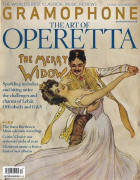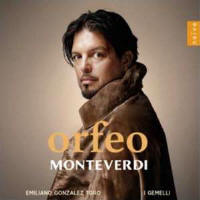Texte paru dans: / Appeared in: Naïve |
|
|
Outil de traduction (Très approximatif) |
|
|
Reviewer:
Iain Fenlon It is both in keeping with a sense of attention to historical detail, as well as something of a personal testament, that Emiliano Gonzalez Toro heads his booklet note to this new recording ‘In the beginning was the word’, a clear reference to Monteverdi’s famous aesthetic statement. Both in his own singing and in that of the other soloists, there is a keen collective sympathetic understanding of Monteverdi’s operatic language, a language generated by the ideal of a complete fusion of words and music. That sense of commitment is evident from the very start, with Emöke Baráth’s sensitively delivered account of the Prologue, and in many other moments including Orfeo’s opening arioso ‘Rosa del ciel’ to the beautifully paced emotional unfolding of the messengers’ announcement. Gonzalez has a fine voice and gives ‘Possente spirto’, the geographical and spiritual heart of the work, a reading of great poetic beauty, the neatly articulated virtuoso passagework controlled and with just occasional signs of strain. In keeping with what is known about the first performance, the choruses are sung with just one voice to a part. They are done so with warmth and rhythmic vivacity but the determination to project forward motion in the first two acts leads to some implausible speeds for some of the choruses, ‘Lasciate i monte’ being a notable instance. It is particularly in relation to instrumentation that Monteverdi’s score is difficult to realise. Faced with the long list of instruments printed at the front of the score, and some imprecise indications inside it, the temptation is to stretch the evidence; but Gonzalez intelligently avoids the worst excesses of over-instrumentation while still respecting the implicit division between the dark timbres of the underworld and the airy and bright textures of pastoral Arcadia. Improvised ornamentation of the instrumental lines is another matter. From the moment that La Musica is introduced with a cascade of improvised passagework on the triple harp, it is clear that added arpeggios, scale passages and melodic fragments are to be the order of the day, in addition to the standard decorative flourishes validated by the contemporary literature. The result, a cornucopia of unscripted activity, will not please everyone despite its undoubted virtuosity, and contrasts somewhat with the embellishments added by the soloists, usually in a more unobtrusive way. This is a dramatic and lively reading given by a well-selected and carefully matched cast guided by a musician of sensitivity and imagination. The competition is of course fierce with, among others, Jürgen Jürgens, John Eliot Gardiner and Gabriel Garrido in contention. My own preference remains with the 1984 EMI recording co-directed by Charles Medlam and Nigel Rogers, whose expertly paced and magisterial rendition of ‘Possente spirto’, sensuous, passionate and thoroughly convincing through its projection of sheer vocal authority, remains unrivalled. |
|




